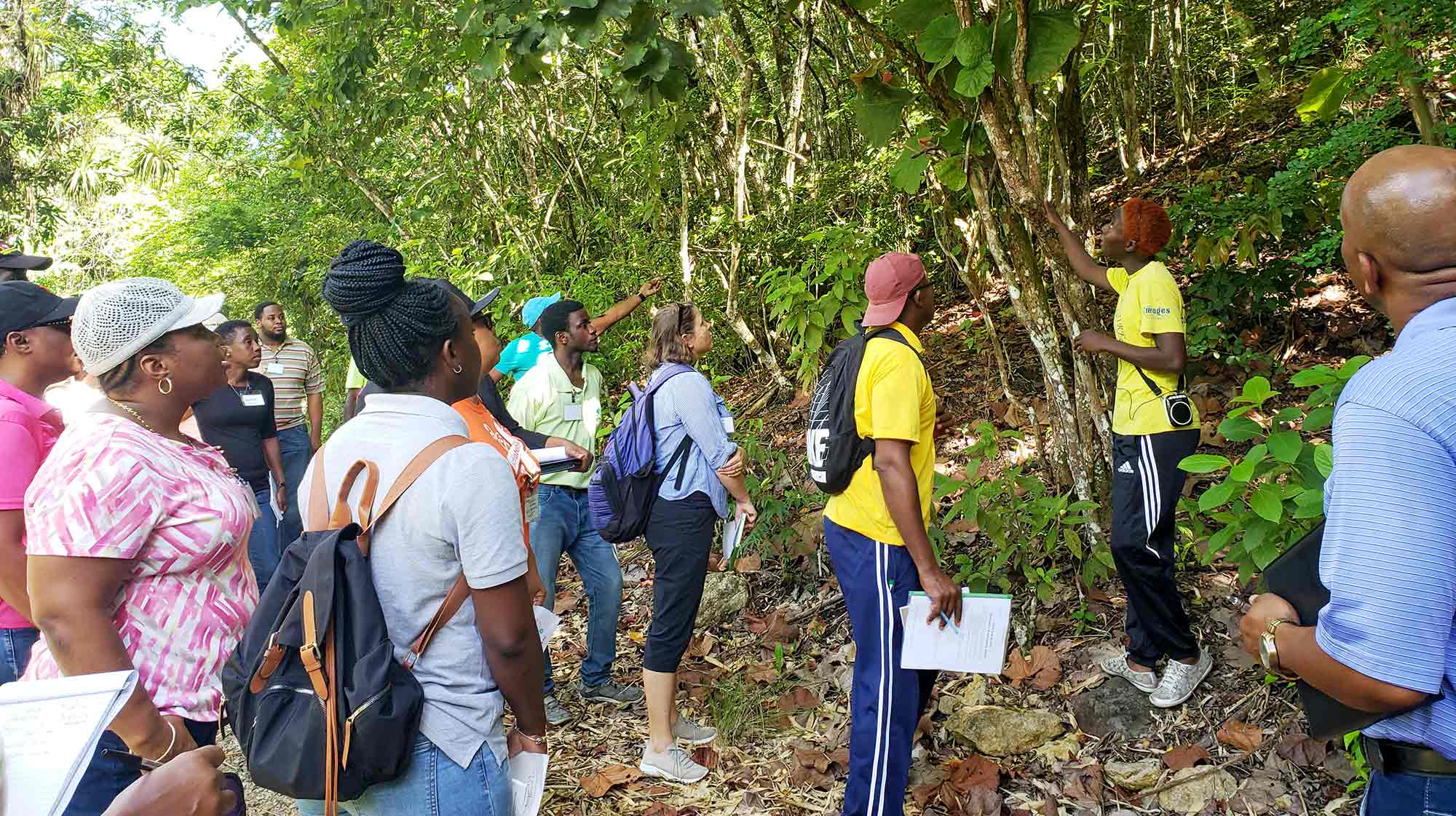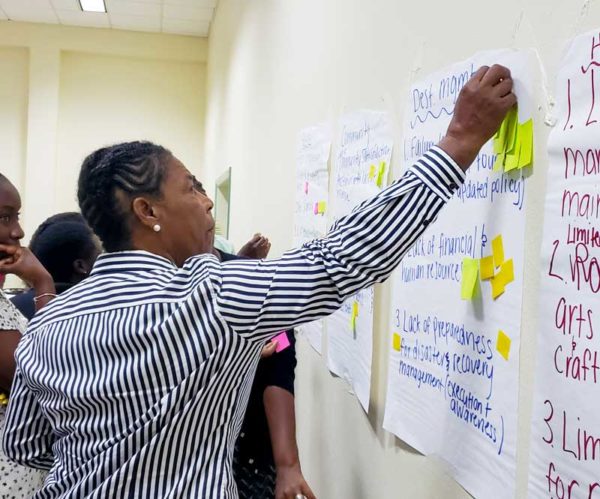Facilitating a Destination Stewardship and Action Planning Workshop
Located in the heart of the Eastern Caribbean, Antigua and Barbuda is a popular island destination known for its 365 beautiful beaches. Over one million tourists visited the islands in 2018, making Antigua and Barbuda one of the most tourism dependent countries in the world. Point in case: tourism is the top economic activity in the country, accounting for over half of GDP and supporting one in two jobs.
Like many other small island destinations, Antigua and Barbuda faces various sustainability challenges. The islands have limited natural resources and are highly vulnerable to climate change. In addition, a strong dependence on cruise tourism limits the local economic benefits generated by tourism, as Caribbean cruise tourists tend to spend significantly less onshore than land-based visitors.
To plan for sustainable tourism development, the Antigua and Barbuda Ministry of Tourism & Investment partnered with Sustainable Travel International in 2014 as part of the Sustainable Destinations Alliance for the Americas program. One of the outcomes of this program was the creation of a Destination Stewardship Council to oversee and coordinate sustainable tourism development in Antigua and Barbuda. To increase cross-sector collaboration, stakeholders from across government agencies, businesses, and NGOs sit on the council.
Our Role
To build upon this previous work, we again partnered with Antigua and Barbuda in 2019. This time our goal was to deepen stakeholders’ understanding of sustainable tourism and prepare the council to take concrete action.
To accomplish this, our team facilitated a Destination Stewardship & Action Planning Workshop in October 2019. Attendees included members of the Destination Stewardship Council as well as representatives from the public, private, and civic sectors. Participants learned about the importance of sustainable tourism and discussed the positive and negative impacts that tourism can have on people and the environment. They were also introduced to the four pillars of destination sustainability and best practices related to each.
On the second day of the workshop, participants visited a local nature reserve. During this field trip, they witnessed various examples of sustainability in action, such as natural heritage interpretation and water harvesting practiced at the site.

After learning about sustainable destination principles and practices, participants worked together to assess the sustainability of their own destination. They scored Antigua and Barbuda’s performance against internationally established criteria related to community benefits, waste management, cultural preservation, environmental protection, and other sustainable tourism practices. Participants used these assessment results, along with their personal perspectives and experiences, to debate and identify the top challenges for destination sustainability in Antigua and Barbuda.
Participants were then divided into groups based on their areas of expertise and assigned one of the prioritized sustainability issues. The workshop also included an informational session on project development and management best practices. Using what they learned in this session, each group developed a collaborative destination stewardship project and action plan to address their assigned issue. The resulting four projects focus on the following areas:
- Developing and adopting a national sustainable tourism strategy
- Restoring and improving visitor management at a historic sugar plantation
- Raising local environmental awareness
- Increasing local representation in management positions within the tourism industry
This workshop was just the beginning of the next phase of Antigua and Barbuda’s sustainability journey. With a strong foundation in sustainable tourism and project management, the Destination Stewardship Council will be able to refine and implement actionable solutions that guide the islands towards a more sustainable future.

Protect the Places You Love
Help conserve our planet’s most vulnerable destinations and empower the people who live there. Join the movement today.
Related Work
Small Islands
Discover why sustainable tourism is particularly important in small island destinations.
People & Culture
Learn more about how we’re educating and empowering local communities in destinations around the globe.


